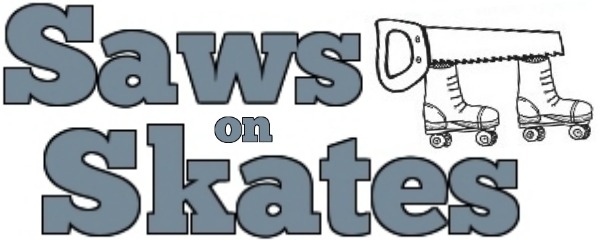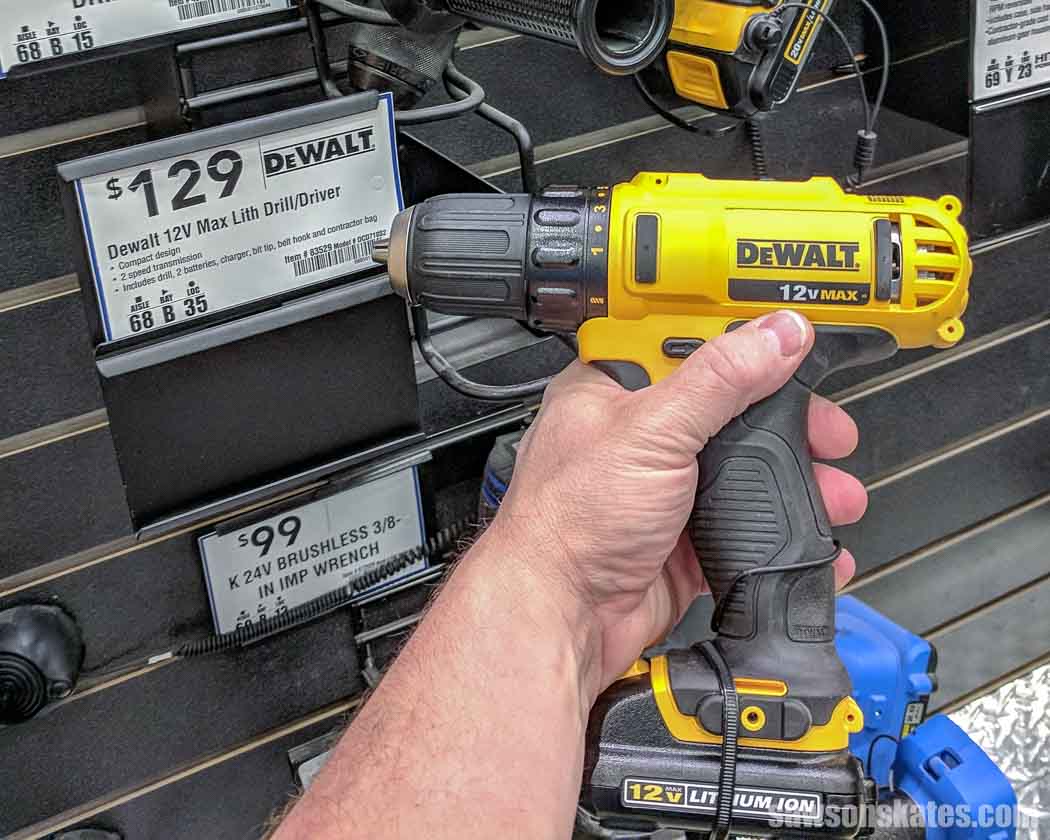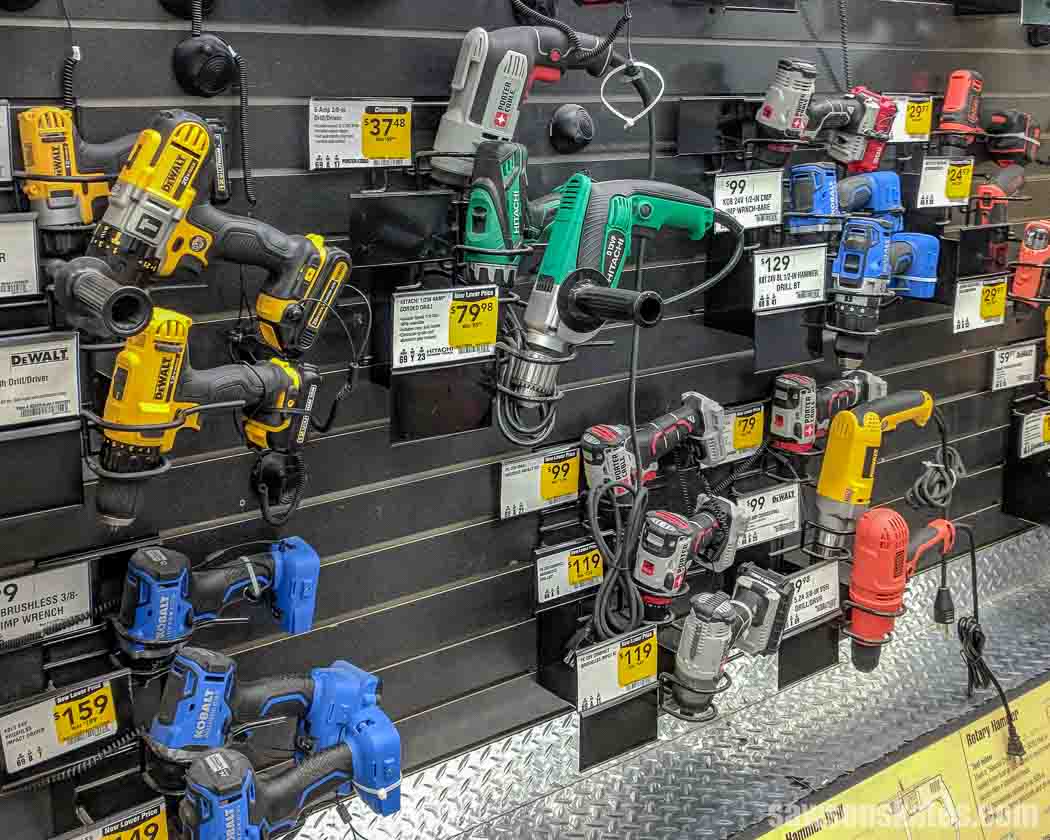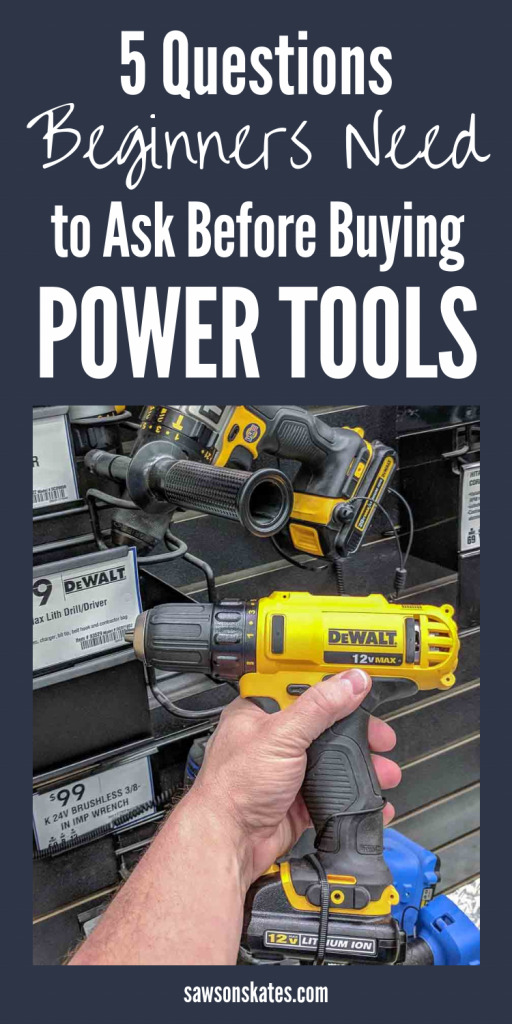5 Questions Beginners Need to Ask Before Buying Power Tools
As beginner DIYers, we’re often unsure about what tools to buy. These five questions are a roadmap for making informed buying decisions about power tools.
Buying power tools can be intimidating, especially for beginner DIYers. First, there are so many brands to choose from like Bosch, Makita, DeWALT, Ryobi, Porter-Cable, Black+Decker and more. So you’re probably wondering “what brand should I buy?” Or maybe you’re not sure what else you need to consider when buying power tools. Today we’ll look at some questions that will help guide you in deciding about what tool to buy.
For your convenience, this post contains affiliate links to supplies or tools I used to complete this project. Purchases made using these links help support the Saws on Skates website and allow me to share more DIY projects. and DIY tips with you. There is no cost to you for using these links. Click here to visit my site policies.
Look Ahead
As a former newbie DIYer, I used to think about tools in the short term. What tool do I need right now to complete this project? Over the years I changed my thinking about tools.
Instead of looking at tools in the short term I started looking at them in the long term. What tool do I need to complete this project AND what tool might I need for future projects?
Why the shift in thinking? As my skill level increased I realized buying one tool that I’ll “grow into” is less expensive than buying a tool now that I’ll soon “grow out of”.
Buy Quality
Informed decisions about buying tools are better decisions. Those better decisions are not just good for our DIY projects, but also good for our wallets. Simply put quality tools last longer. Buying one quality tool now is less expensive than buying a lesser quality tool that won’t last and will need to be replaced later on.
Tools are an Investment
You love a bargain, right? I love a bargain too, but as my skill level increased I started looking at buying tools this way. Buying tools is an investment just like buying a house or putting money away in a 401k plan.
Let’s say we’re looking at buying a miter saw. Miter saw “A” is inexpensive, but reviewers say it isn’t durable and won’t last very long. Miter saw “B” is a little more expensive, but reviewers say it works well and lasts for years. Which tool would you buy?
If we look at buying tools as an investment, miter saw “A” sounds like a waste of money. It’s likely we’ll need to replace this saw soon which means we’ll need to spend more money. For me, I’m going to invest my money in miter saw “B”.
5 Questions Beginners Need to Ask Before Buying Power Tools
By now you’ve probably realized my goal of this post is to get you thinking differently about your tools. Instead of thinking in the short term, think long range. Don’t think inexpensive, think quality. And most importantly think of buying tools as an investment. Below are five questions that will help you focus on these goals. And yes, these are the questions I ask myself before I buy any tool.
Questions to Ask When Buying Power Tools
- How often will I use the tool?
- What features do I need?
- What brand should I buy?
- What are others saying about the tool?
- What is my budget?
1. How Often Will I Use the Tool?
The first question I ask myself when I’m thinking about buying a new power tool is “how often will I use this tool?” Is this a tool I will use daily or weekly or is this a tool I may only use every few months or just once a year?
I will buy the tool if it’s one I will use often. But if it’s a tool I may only use once a year I then ask myself if this is a tool I could borrow from a buddy? Or is this a tool I could rent from a rental place or a big box store?
For example, I use my miter saw for nearly every project I build, so it’s a tool I definitely need to own. But when I needed to pour some footings for my porch I rented a power post hole digger from Home Depot.
I don’t often have the need for a post hole digger, I wasn’t planning on any future projects that would require a post hole digger and I don’t really have the space to store one if I bought it. So it made sense for me rent instead of buy.
2. What Features Do I Need?
The next question I ask myself is “what features does this tool need?” Let’s say we’re in the market for a miter saw. I would sit down and think about all of the types of projects I currently build plus the projects I may want to build in the future.
And let’s also say we plan to build and sell a bunch of jelly cabinets. The sides of this jelly cabinet are made with 1x12s. We could cut those with a circular saw and a crosscut jig, but it would be much easier and quicker to cut the sides with a miter saw.
A saw like my 10” Hitachi Miter Saw wouldn’t be the best option because it would only cut about halfway through a 1×12. What we really need is a sliding miter saw which could cut through the 1×12 in one pass.
3. What Brand Should I Buy?
What brand of tool to buy is a touchy subject for some DIYers. It can spark a heated debate just like discussing politics or which brand of truck is better! I’m not looking to start a debate, so I’m not going to tell you what I think the best power tool brand is or even tell you what brand to buy. Here’s what I will tell you. If you’re like me and you look at buying tools as an investment, all you need to do is look at what kind of power tools contractors use on the job site.
Contractors or people who build professionally don’t buy tools only to have them last for a few months. They invest in quality tools that will last year after year. It’s not good business sense to buy inexpensive tools that need to be replaced often. Business owners need durable tools that can be dropped from a 12’ ladder three times a day and keep going. I also want this kind of durable tool if I’m going to spend my hard earned money.
4. What are Others Saying About This Tool?
I love to research. I love information. I love reading reviews. It’s how I make decisions about anything I buy and I would encourage you to do the same. Get online and read the reviews about the power tools you’re thinking about buying. Ask fellow DIYers and contractors what tools they recommend. Informed decisions are better decisions.
5. What’s My Budget for This Tool?
In a roundabout way, we touched on budget earlier. If we look at tools as an investment we should buy the best tool our budget will allow.
Buying the best tool our budget will allow does not mean buying the most expensive tool. I’m certainly not suggesting for you to max out your credit card to buy a tool. What I am suggesting is to do your research, read reviews, and ask fellow DIYers for their recommendations. Then weigh your options. What is the best tool you can buy within your budget?
And let me add this. Anytime I’ve focused on my budget over quality, I was always disappointed. When my research told me I needed a more expensive tool, but I ended up skimping saying to myself “this will do”, I always regretted not going with the quality tool. I’ve always been happier if I saved for the tool I needed rather than pinching pennies on one that doesn’t quite do the job.
Buying the best tool doesn’t always mean buying a new tool. Skate over to The Dos and Don’ts of Buying Used Tools for tips about buying used tools and where to find used tools for sale.
Conclusion
Buying power tools can be intimidating but you can make your decision easier by asking yourself a few questions. How often will I use the tool? What features do I need? What brand should I buy? What are others saying about the tool? What is my budget? Remember when buying power tools to look ahead at your future projects, buy quality tools, and look at your tools as an investment.
Thank you for stopping by. If you found this information helpful, would you please pin it to Pinterest? Other DIYers would appreciate it and I would too! Thank you – Scott




Regarding the brand to buy: I always search for a tool that is made in North America. If parts of the tool are made off-shore or the whole tool is made off-shore, I won’t buy it; basically I reconsider whether I really need that tool or should I borrow someone else’s tool. It is getting harder to find North American-made tools and some brands which were once made in the USA or Canada are now made off shore. Ugh.
Great article. Thank you!
Hi Tam – Thank you for stopping by. I’m glad you found it helpful.
Hey Scott…enjoyed your post. You make a lot of valid points. One thing I would semi disagree with is the quality of tools contractors use. I have often noticed they use some low quality power equipment. When I inquired as to why the answer was the big box stores take everything back!
Hey Matt – Thank you for stopping by. That’s a good point. I never thought about it that way. Thank you for the tip!